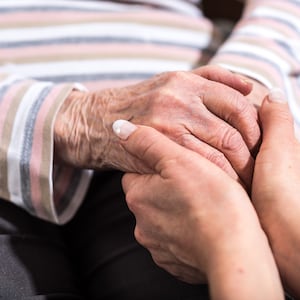Health
Caregivers Face Health Risks in Dementia Care in New Zealand

The challenges of caregiving for individuals with dementia have come to light, particularly in New Zealand, where caregivers face significant health risks. According to Emma Heming Willis, who has been caring for her husband, actor Bruce Willis, since his diagnosis with frontotemporal dementia, caregivers experience alarming mortality rates. In her book, The Unexpected Journey: Finding Strength, Hope and Yourself on the Caregiving Path, she highlights that caregivers die at a rate 63% higher than their non-caregiving peers, with 30% of caregivers passing away before the individuals they are caring for.
These statistics underscore a pressing issue that affects not just the individuals diagnosed with dementia but also their caregivers. According to Dementia New Zealand senior educator Winifred Henderson, the demands placed on care partners can lead to severe health consequences. “Generally, the care partners are on 24/7, and that affects sleep quality,” she explains. “When you’re fatigued, you’re not as good; you burn out.”
Emotional and Physical Toll on Caregivers
The emotional and physical toll of caregiving is profound. Care partners often report feelings of isolation, stress, and anxiety as they navigate the complexities of dementia care. The situation is compounded by the fact that many caregivers are balancing their caregiving roles with other responsibilities, such as employment and family obligations.
Henderson emphasizes the importance of self-care for caregivers, noting that neglecting their own health can lead to detrimental outcomes. “It’s vital for caregivers to carve out time for themselves, even if it’s just a few minutes each day,” she advises. “Taking care of one’s own health is essential to provide effective care for others.”
Support Systems and Resources
In response to the increasing demands on caregivers, various support systems and resources are available in New Zealand. Organizations like Dementia New Zealand offer training, resources, and emotional support to caregivers. These initiatives aim to empower caregivers with the knowledge and skills they need to manage their responsibilities while maintaining their well-being.
Community support groups also play a crucial role in alleviating feelings of isolation among caregivers. Sharing experiences with others who understand the challenges can provide emotional relief and practical advice.
As the conversation around dementia care continues to evolve, the need for targeted support for caregivers remains critical. Advocates argue that more awareness and resources are necessary to address the specific challenges faced by caregivers in New Zealand and beyond. The health risks associated with caregiving should not be overlooked, and efforts must be made to ensure that those who care for others also receive the care they need.
The reality of dementia care is complex, and as more families navigate this journey, understanding the realities faced by caregivers will be essential in fostering a supportive environment for all involved.
-

 Sports2 months ago
Sports2 months agoNetball New Zealand Stands Down Dame Noeline Taurua for Series
-

 Entertainment2 months ago
Entertainment2 months agoTributes Pour In for Lachlan Rofe, Reality Star, Dead at 47
-

 Entertainment4 weeks ago
Entertainment4 weeks agoNew ‘Maverick’ Chaser Joins Beat the Chasers Season Finale
-

 Sports7 days ago
Sports7 days agoEli Katoa Rushed to Hospital After Sideline Incident During Match
-

 Sports2 months ago
Sports2 months agoSilver Ferns Legend Laura Langman Criticizes Team’s Attitude
-

 Politics1 month ago
Politics1 month agoNetball NZ Calls for Respect Amid Dame Taurua’s Standoff
-

 Entertainment2 months ago
Entertainment2 months agoKhloe Kardashian Embraces Innovative Stem Cell Therapy in Mexico
-

 Sports4 days ago
Sports4 days agoJamie Melham Triumphs Over Husband Ben in Melbourne Cup Victory
-

 World3 months ago
World3 months agoPolice Arrest Multiple Individuals During Funeral for Zain Taikato-Fox
-

 Sports3 months ago
Sports3 months agoGaël Monfils Set to Defend ASB Classic Title in January 2026
-

 Entertainment1 month ago
Entertainment1 month agoTyson Fury’s Daughter Venezuela Gets Engaged at Birthday Bash
-

 Sports1 month ago
Sports1 month agoHeather McMahan Steps Down as Ryder Cup Host After Controversy

















